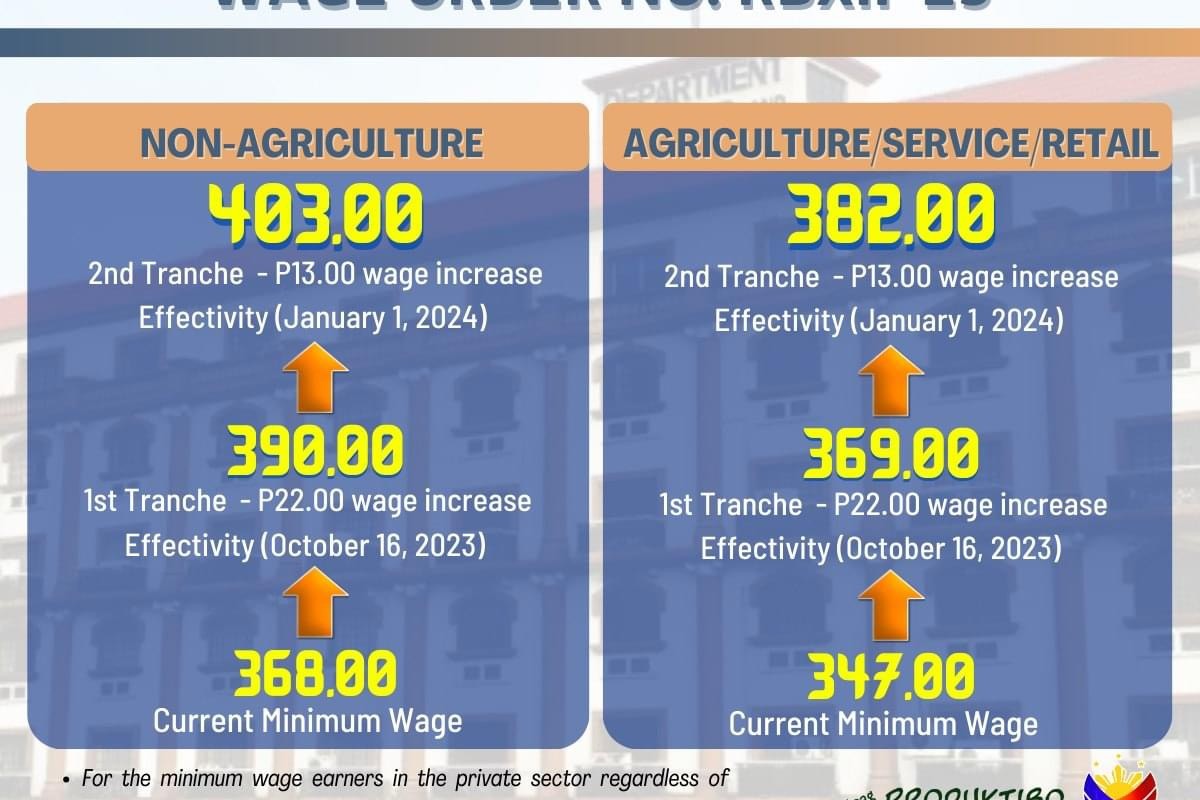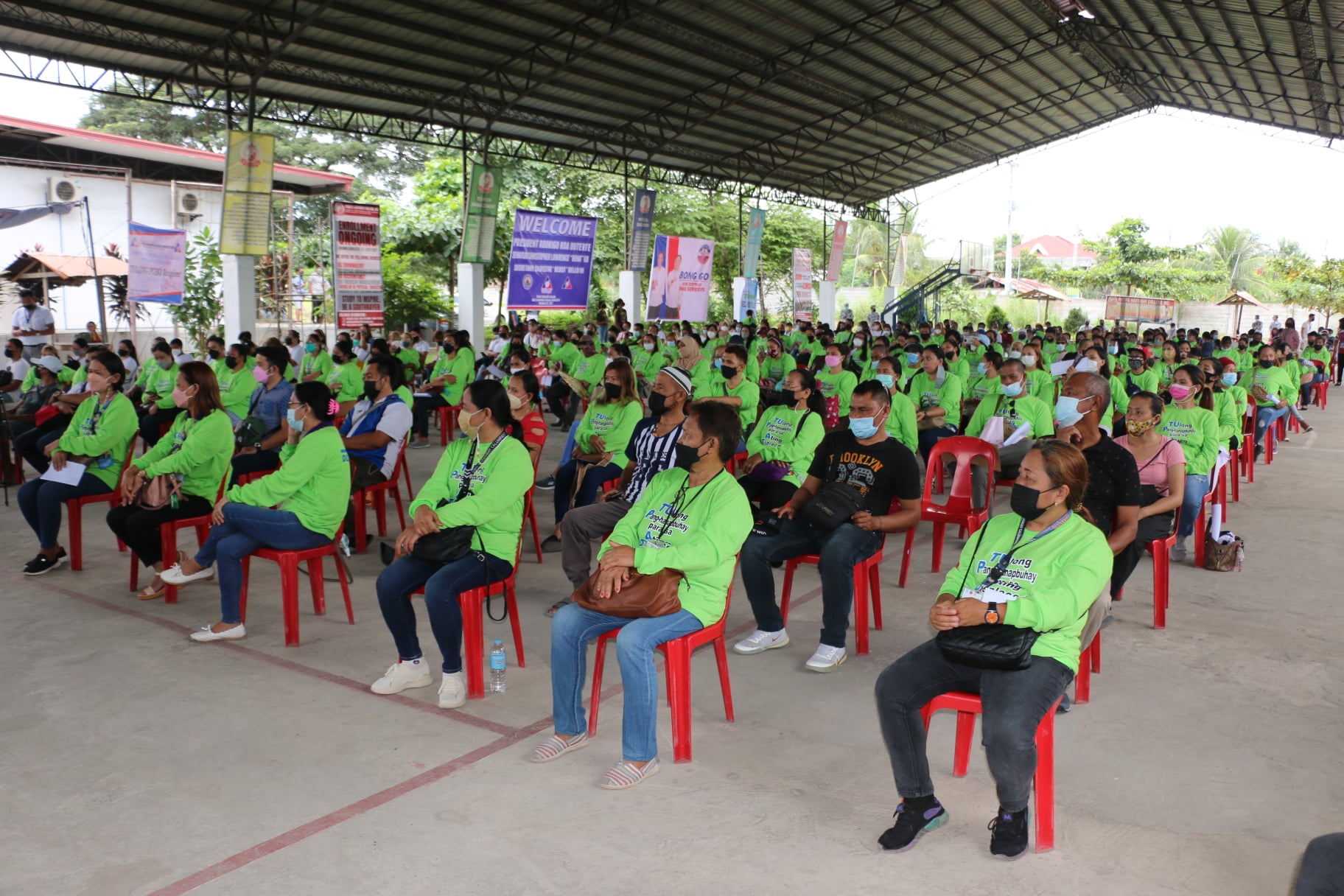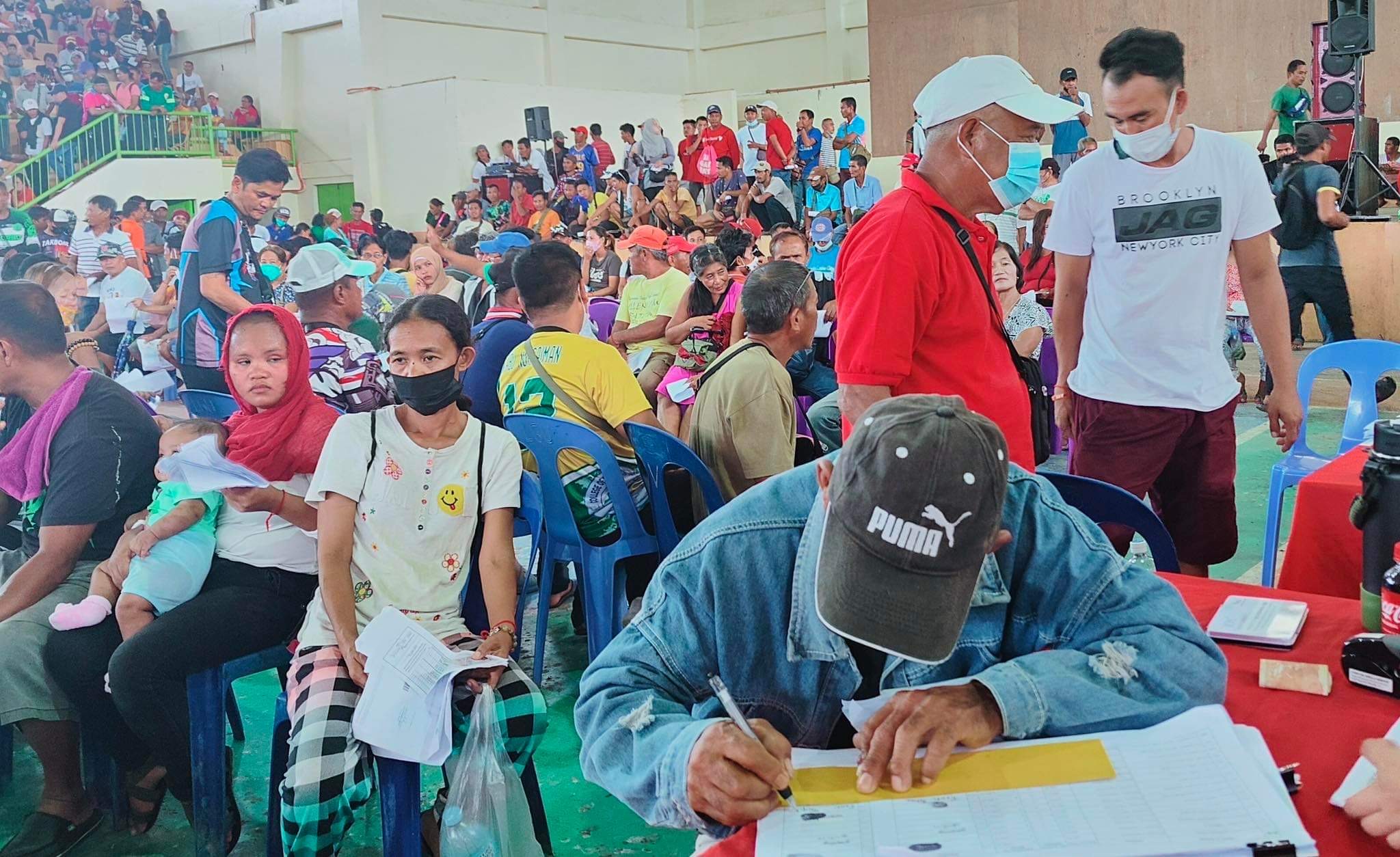
KORONADAL CITY, South Cotabato (PIA) -- Private sector workers in the Sockssargen Region will get a P35 per day increase in wages to be given in two tranches.
Household workers, on the other hand, will also receive a pay hike amounting to P500 to be added to their basic pay.
The SOCCSKSARGEN's Regional Tripartite Wages and Productivity Board (RTWPB XII) approved on September 21 Wage Order No. RB XII-23, providing a uniform increase of P35 per day to workers in the non-agriculture, agriculture, and service retail sectors.
The wage increase will be granted in two tranches: P22/day effective October 16, 2023, and P13/day on January 1, 2024.
Thus, on October 16, the minimum daily wage for workers in the non-agriculture sector will be P390, while those in the agriculture and service retail sectors will be P369.
Effective January 1, next year, the minimum wages will be P403 and P382, respectively.
The RTWPB XII also approved Wage Order No. RBXII-DW-04, providing a pay raise of P500 to household workers effective October 16.
This hiked the minimum wage for household help in cities and first-class municipalities to P5,000 and P4,500 in other municipalities.
The wage order for kasambahays applies to the following: general househelps, yaya, cooks, laundry person, and any person who regularly performs domestic work in one household on an occupational basis, whether on a live-in or live-out basis. Not covered in the said order are service providers, family drivers, children under foster family arrangements who are provided access to education and given an allowance incidental to education, and any other person who performs work occasionally or sporadically and not on an occupational basis.
SOCCSKSARGEN Region, or Region 12, covers the provinces of South Cotabato, Cotabato Province, Sultan Kudarat, and Sarangani, and the cities of General Santos, Koronadal, Tacurong, and Kidapawan.
Despite the absence of a petition, the RTWPB XII initiated deliberations on wage review in July. On August 8, the Board conducted public consultations in Kidapawan City to gather public sentiments, views, and opinions from both the labor and management sectors, as well as from other stakeholders, on the necessity and propriety of having a minimum wage adjustment in the region. (DED -- PIA SOCCSKSARGEN)





